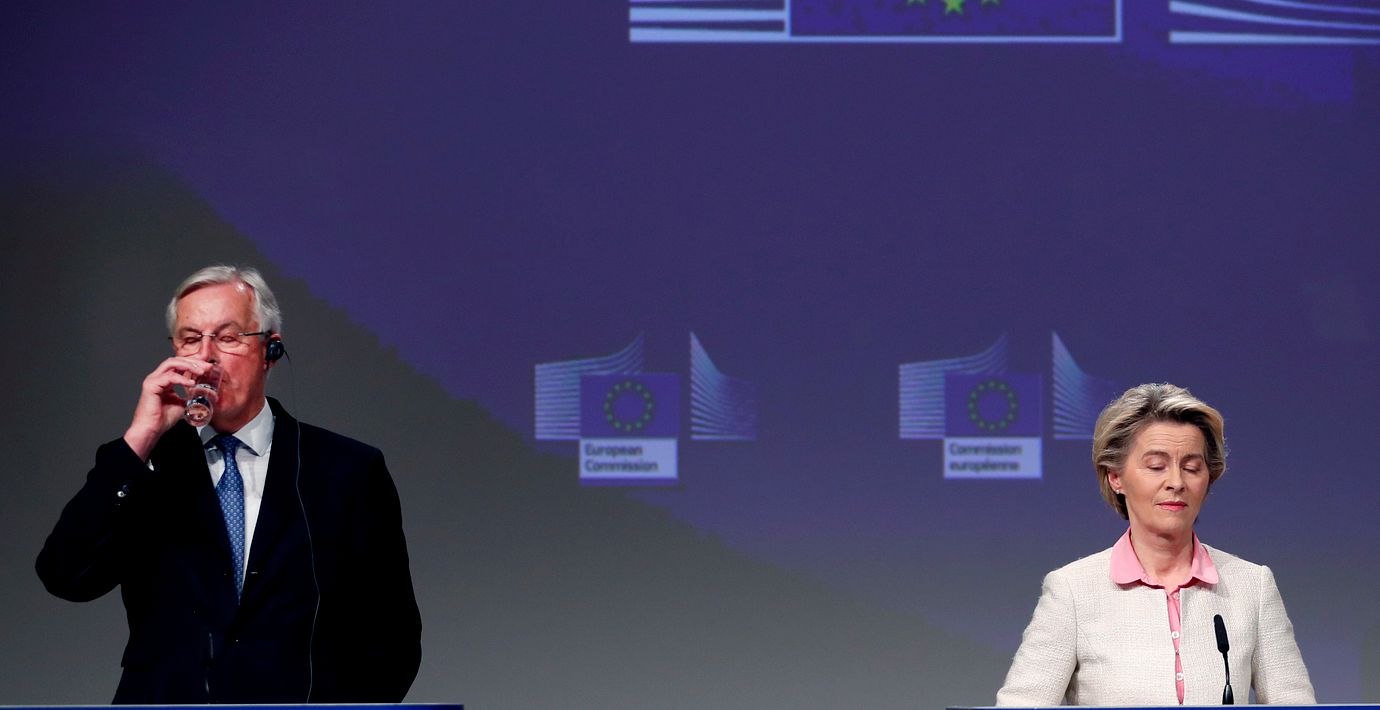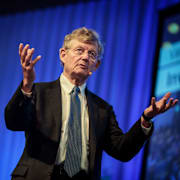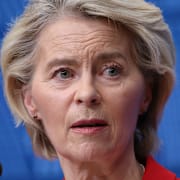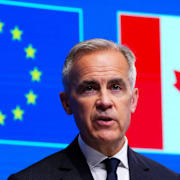
Tidigare EU-topp anklagar von der Leyen för toppstyre
EU-kommissionen drivs i en alltmer auktoritär riktning under Ursula von der Leyens ordförandeskap. Det hävdar den tidigare EU-kommissionären Michel Barnier i en ny bok, enligt Politico.
Barnier skriver att von der Leyen ”vill bestämma allt”, vilket har lett till att kommissionärerna reducerats till teknokrater i stället för att driva politik.
– Man lyssnar inte tillräckligt. Man lyssnar inte tillräckligt på folket, säger Barnier till Politico.
Barnier och von der Leyen har haft en frostig relation ända sedan hon beslutade sig för att sköta brexitförhandlingarna ensam 2020. Vid tidpunkten var Barnier kommissionär med ansvar för brexitfrågan.
bakgrund
Ursula von der Leyen
Wikipedia (en)
Ursula Gertrud von der Leyen (German: [ˈʊʁzula ˈɡɛʁtʁuːt fɔn deːɐ̯ ˈlaɪən] ; née Albrecht; born 8 October 1958) is a German politician, serving as president of the European Commission since 2019. She served in the German federal government between 2005 and 2019, holding positions in Angela Merkel's cabinet, most recently as Federal Minister for Defence. She is a member of the centre-right Christian Democratic Union (CDU) and its affiliated European political party, the European People's Party (EPP). On 7 March 2024, the EPP elected her as its Spitzenkandidat to lead the campaign for the 2024 European Parliament elections. She was re-elected to head the Commission in July 2024.
Von der Leyen was born and raised in Brussels, Belgium, to German parents. Her father, Ernst Albrecht, was one of the first European civil servants. She was brought up bilingually in German and French, and moved to Germany in 1971 when her father became involved in German politics. She graduated from the London School of Economics in 1978, and in 1987, she acquired her medical license from Hanover Medical School. After marrying fellow physician Heiko von der Leyen, she lived for four years in the United States with her family in the 1990s. After returning to Germany she became involved in local politics in the Hanover region in the late 1990s, and she served as a cabinet minister in the state government of Lower Saxony from 2003 to 2005.
In 2005, von der Leyen joined the federal cabinet, first as Minister for Family Affairs and Youth from 2005 to 2009, then taking on the role of Minister for Labour and Social Affairs from 2009 to 2013, and finally serving as Minister for Defence from 2013 to 2019, the first woman to do so. When she left office, she was the only minister to have served continuously in Merkel's cabinet since Merkel became chancellor. She served as a deputy leader of the CDU from 2010 to 2019, and was regarded as a leading contender to succeed Merkel as the chancellor of Germany and as the favourite to become the secretary general of NATO after Jens Stoltenberg. British defence secretary Michael Fallon described her in 2019 as "a star presence" in the NATO community and "the doyenne of NATO ministers for over five years". In 2023, she was again regarded as the favourite to take the role.
On 2 July 2019, von der Leyen was proposed by the European Council as the candidate for president of the European Commission. She was then elected by the European Parliament on 16 July; she took office on 1 December, becoming the first woman to hold the office. In November 2022 she announced that her commission would work to establish an International Criminal Tribunal for the Russian Federation. She was named the most powerful woman in the world by Forbes in 2022, 2023 and 2024.
On 18 July 2024, von der Leyen was re-elected as President of the European Commission by the European Parliament with an absolute majority of 401 members of the European Parliament out of 720. Her absolute majority was strengthened by around thirty votes compared to her election in 2019.
Omni är politiskt obundna och oberoende. Vi strävar efter att ge fler perspektiv på nyheterna. Har du frågor eller synpunkter kring vår rapportering? Kontakta redaktionen



